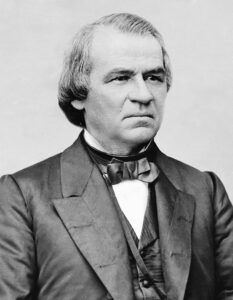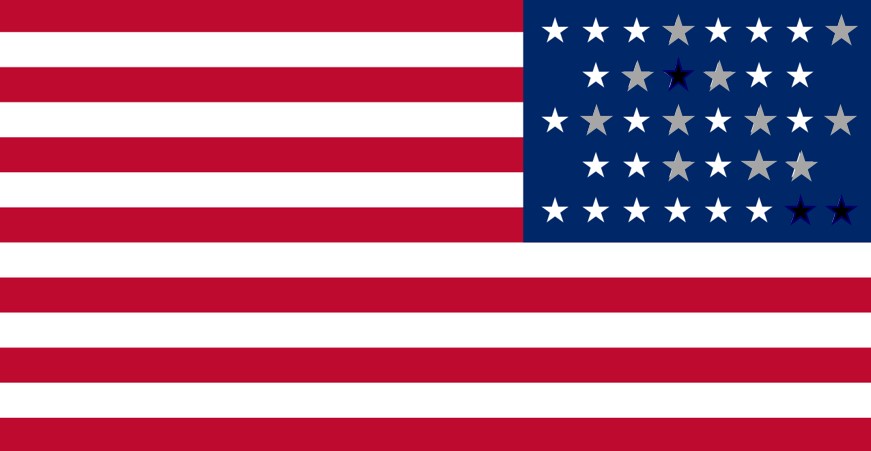WASHINGTON’S BIRTHDAY: Three days after having alienated the Republican (nationalist) 39th Constitutional Congress (elected in accordance with Article I, Section 3 [Clause 1]) by vetoing the Freedmen’s Bureau Extension Act, war Democrat (constitutionalist) de facto President Andrew Johnson (a Citizen of the confederate State of Tennessee) makes the split permanent with his divisive “Washington’s Birthday Speech”:
… There were men disaffected toward the [federal g]overnment in both the North and the South. There were peculiar institutions [slavery] in the country to which some were averse and others attached. …
· · · · · ·
… The rebellion is put down by the strong arm of[g]overnment in the field. But is this the only way in which we can have rebellions? …[W]e are now almost inaugurated into another rebellion.
…[T]here is an attempt now to concentrate all power in the hands of a few at the federal head, and thereby bring about a consolidation of the Republic, which is equally as equally objectionable with its dissolution. …
· · · · · ·
… I should name to you those whom I look upon as opposed to the principals of this [g]overnment, and as now laboring to destroy them. I say [Republican (nationalist) Representative] Thaddeus Stevens, of Pennsylvania; I say [Republican Representative] Charles Sumner, of Massachusetts; and I say Wendell Phillips, [an abolitionist attorney] of[Boston,] Massachusetts.
· · · · · ·
… My only usurpation has been committed by standing between the people and the encroachments of power.
· · · · · ·
… Are those who want to destroy our institutions [federalism] and change the character of our [g]overnment not satisfied with the blood that has been shed?
NOTE: Although Johnson uses the word “country” here, he also uses the word “Union,” which is a union of sovereign States under a federal system, with a central government whose powers are strictly limited by a respected Constitution; as opposed to “nation,” in which a central government, with almost limitless power, treats its constituent states as mere enclaves, provinces, or sub-divisions of its greater self.
[added 4/24/2022]
Subsequent Events:
References:
Edward McPherson, The Political History of the United States of America During the Period of Reconstruction (from April 15, 1865, to July 15, 1870): Including a Classified Summary of the Legislation of the Thirty-ninth, Fortieth, and Forty-first Congresses With the Votes Thereon; Together With the Action, Congressional and State, On the Fourteenth and Fifteenth Amendment To the Constitution of the United States, and the Other Important Executive, Legislative, Politico-Military, and Judicial Facts of that Period, second edition, (1875; New York: Negro Universities Press, 1969), 58-63.
William M. Weicek, The Guarantee Clause of the U.S. Constitution, (Ithaca, New York and London: Cornell University Press, 1972), 198-99.


